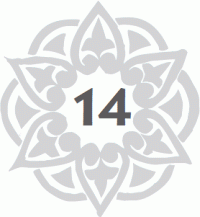

While all of the problems we have dealt with are shared to one extent or another by each and every living being, breath control is somewhat unique in the degree to which the illness-free individual matches up with people with MS: few people have any degree of breath control.
This critical activity, in which the conscious individual meets up with the autonomic process that takes over whenever we are asleep, or when we are paying attention to something else, is the subject of an excellent book by B.K.S. Iyengar, titled Pranayama, to which all interested parties are referred.
Respiration and digestion are the two universal and necessary ingredients in metabolism, the process of being alive. Digestion goes on without our permission, whether we like it or not. Breathing will go on without our efforts, but we can easily alter it consciously, directly, and consistently. It is the estuary where conscious control meets the autonomic functions, and a portal through which we may enter our own unknown territories within.
It may be useful to begin breathing exercises with ten minutes of meditation. Dr. Herbert Benson and others, including the Maharishi Mahesh and their many predecessors have a developed a simple and effective methodology for taking up meditation.
1. Sit in a comfortable position.
2. Select a sound or phrase that is not emotionally charged (e.g., “Om,” “One,” “Inshallah,” “Today.”)
3. Close your eyes.
4. Say the sound or phrase to yourself every time you exhale.
5. Focus your attention on the phrase.
6. If your thoughts wander, passively return to concentrating on the phrase.
7. Continue for 10 minutes.
One way to continue into the breathing proper is Nadi Sodhana Pranayama. The best introduction to this type of alternate-nostril breathing, and many other techniques are the works of B.K.S. Iyengar.
For those interested in pursuing meditation, Heart of Meditation by Durgananda is highly recommended.
In this book we have introduced a number of asanas that are born of the uses that can be made of them by people with neurological deficits. All of us have profound and lasting deficits and deficiencies, which may be addressed and gradually remedied with proper attention and work.
The authors hope that the profound deficiencies of this attempt will be remediated by those interested parties that come after us.